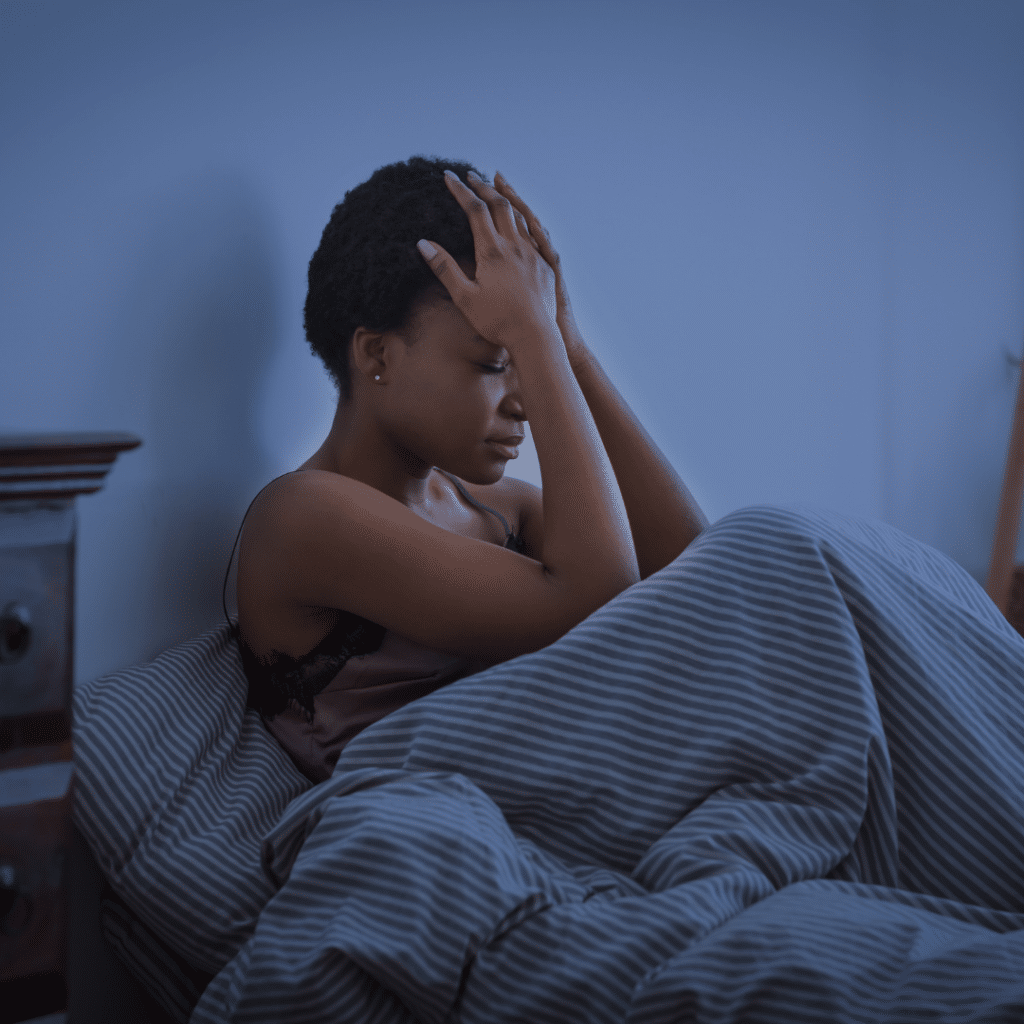
Those with Bipolar Disorder are likely aware that sleep plays a critical role in managing their condition, but why is this? Sleep disturbances are common symptoms of Bipolar Disorder. While you may be more aware of your mood shifts during the day, these challenges don’t disappear when night falls. Understanding the link between sleep and mood stability is not just insightful—it’s crucial for effective management and a better quality of life for individuals living with bipolar disorder.
The Relationship Between Sleep and Mood in Bipolar Disorder
Individuals with Bipolar Disorder commonly experience significant sleep challenges. These can be characterized by trouble falling asleep during manic episodes, excessive sleeping during depressive phases, difficulty maintaining a consistent sleep schedule, or feeling exhausted despite spending time in bed.
With Bipolar Disorder, sleep disruptions can manifest in various ways. During manic phases, individuals might experience a reduced need for sleep, feeling energized with just a few hours of rest. They may have racing thoughts that prevent relaxation or find themselves extremely active during nighttime hours. The brain seems to be in constant motion, making it difficult to wind down.

In contrast, depressive episodes can bring about hypersomnia – excessive sleeping that doesn’t refresh or restore energy. Many patients report feeling trapped in bed, struggling to find motivation to start their day. This can further complicate the already challenging experience of managing Bipolar Disorder.
Circadian Rhythms and Bipolar Disorder

The body’s internal clock, or circadian rhythm, regulates sleep-wake cycles and other physiological processes. For individuals with bipolar disorder, circadian rhythm disruptions are common and can exacerbate mood instability. For example, irregular sleep schedules or exposure to artificial light late at night can misalign this internal clock, intensifying symptoms.
Maintaining a consistent sleep-wake schedule has been shown to improve mood stability and reduce the frequency of mood episodes in bipolar disorder. Studies found that regularizing circadian rhythms through structured daily routines led to significant improvements in mood symptoms.
Sleep as a Predictor of Mood Episodes
Research shows that disrupted sleep isn’t only a symptom of bipolar disorder but also a potential trigger for mood episodes. Studies suggest that even one night of poor sleep can increase the risk of a manic episode, highlighting the bidirectional relationship between sleep and mood regulation. Changes in sleep patterns often precede mood episodes, making sleep an essential early warning system. Insomnia or reduced need for sleep can signal an impending manic episode, while excessive sleepiness may indicate a depressive episode is looming.
Monitoring sleep patterns through journals or wearable devices, like the Oura Ring and Apple Watch, can help individuals and healthcare providers identify and address these red flags early. Intervention at this stage—such as adjusting medication or implementing therapeutic strategies—can prevent full-blown episodes and improve overall prognosis.
Final Thoughts
Sleep plays an important role in the course and management of bipolar disorder. By understanding the connection between sleep and mood, individuals and healthcare providers can take proactive steps to stabilize sleep patterns and enhance overall well-being. From maintaining consistent routines to seeking evidence-based therapies, addressing sleep disturbances should be a cornerstone of bipolar disorder treatment.
Responsibly edited by AI
Other Blog Posts in
Animo Sano Psychiatry is open for patients in North Carolina, Georgia and Tennessee. If you’d like to schedule an appointment, please contact us.
Get Access to Behavioral Health Care
Let’s take your first step towards. Press the button to get started. We’ll be back to you as soon as possible.ecovery, together.




